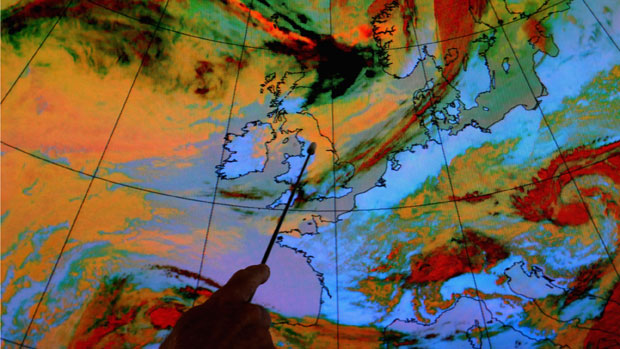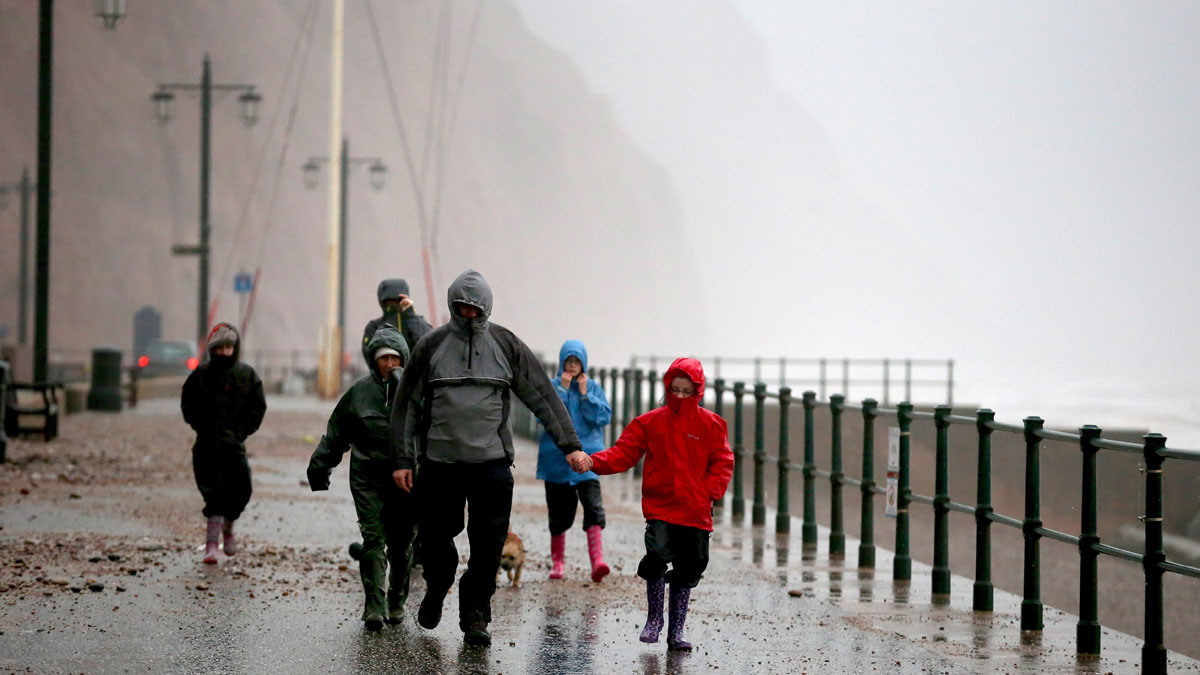Met Office 'supercomputer' to predict weather in more detail
New £97m computer can perform 16,000 trillion calculations a second and weighs 140 tonnes

A free daily email with the biggest news stories of the day – and the best features from TheWeek.com
You are now subscribed
Your newsletter sign-up was successful
A new £97m supercomputer is expected to help the Met Office provide earlier and more detailed forecasts for disruptive weather, such as floods, fog and snow. The government-funded High Performance Computer (HPC) is said to be one of the most powerful computers in the world. It will be based partly at the Met Office headquarters in Exeter and partly at a new facility in the Exeter Science Park.
What's wrong with the current forecasting machine?
It is not powerful enough. The Met Office feeds data from satellites and ground stations into computer simulations to predict the weather. The accuracy of predictions depends on the resolution of the computer simulation – so the higher the resolution, the more detailed the forecast. For national predictions, the UK is divided into squares of around 1.5km across, says the Daily Telegraph. This is useful for rough predictions but not good at showing whether snow might fall on a certain road or runway.
The Week
Escape your echo chamber. Get the facts behind the news, plus analysis from multiple perspectives.

Sign up for The Week's Free Newsletters
From our morning news briefing to a weekly Good News Newsletter, get the best of The Week delivered directly to your inbox.
From our morning news briefing to a weekly Good News Newsletter, get the best of The Week delivered directly to your inbox.
What can the supercomputer do?
The HPC can perform 16,000 trillion calculations a second (known as 16 petaflops), making it 13 times more powerful than the Met Office's current machine. It will also be three times heavier, weighing 140 tonnes, the equivalent of 11 double decker buses. The supercomputer will allow the Met Office to run 1.5km forecasts every hour rather than every three, but can also zoom in to smaller blocks of 300 metres to produce highly detailed predictions. The Telegraph says it will be able to give forecasts six days ahead instead of four and calculate temperatures for the next 24 hours with up to 90 per cent accuracy.
Does it do anything else?
Yes, it can also assist with climate change predictions by attempting to forecast weather patterns up to centuries in advance. "This is really world-class, cutting-edge science but not science for science's sake," says Rob Varley, Met Office chief executive. "It is science that makes a difference to mankind."
A free daily email with the biggest news stories of the day – and the best features from TheWeek.com
When will the supercomputer be ready?
The first weather forecasts are expected by September 2015, with the system reaching its full computing capacity in 2017.
Does this mean the Met Office will always get it right?
Michael Fish's 1987 hurricane blunder and the "barbecue summer" prediction ahead of 2009's summer washout have gone down in history. But the Met Office insists that people never notice its everyday successes and increased reliability, says BBC science editor David Shukman. "The new supercomputer should accelerate that process, crunching bigger numbers at a finer scale and more frequently than ever before," he says. "But it may also raise expectations about accuracy. And, in a country obsessed with the weather, that brings its own risks."
-
 The ‘ravenous’ demand for Cornish minerals
The ‘ravenous’ demand for Cornish mineralsUnder the Radar Growing need for critical minerals to power tech has intensified ‘appetite’ for lithium, which could be a ‘huge boon’ for local economy
-
 Why are election experts taking Trump’s midterm threats seriously?
Why are election experts taking Trump’s midterm threats seriously?IN THE SPOTLIGHT As the president muses about polling place deployments and a centralized electoral system aimed at one-party control, lawmakers are taking this administration at its word
-
 ‘Restaurateurs have become millionaires’
‘Restaurateurs have become millionaires’Instant Opinion Opinion, comment and editorials of the day
-
 Looming cold snap fuels fears of UK power cuts
Looming cold snap fuels fears of UK power cutsSpeed Read Drop in temperatures in coming days may be ‘first piece of grim jigsaw’
-
 Will it snow this week?
Will it snow this week?Speed Read Met Office says incoming cold snap could see temperatures drop well below zero
-
 When will Storm Helene hit the UK?
When will Storm Helene hit the UK?In Depth Met Office issues yellow weather warning as winds of up to 70mph approach
-
 Frank and Rhonda: Met Office reveals storm names
Frank and Rhonda: Met Office reveals storm namesSpeed Read Naming storms is the Met Office's latest move in raising awareness of dangerous weather conditions
-
 Indian summer may follow wet August, say forecasters
Indian summer may follow wet August, say forecastersSpeed Read Temperatures could reach 27C this weekend as mini-heatwave holds out promise of an Indian summer